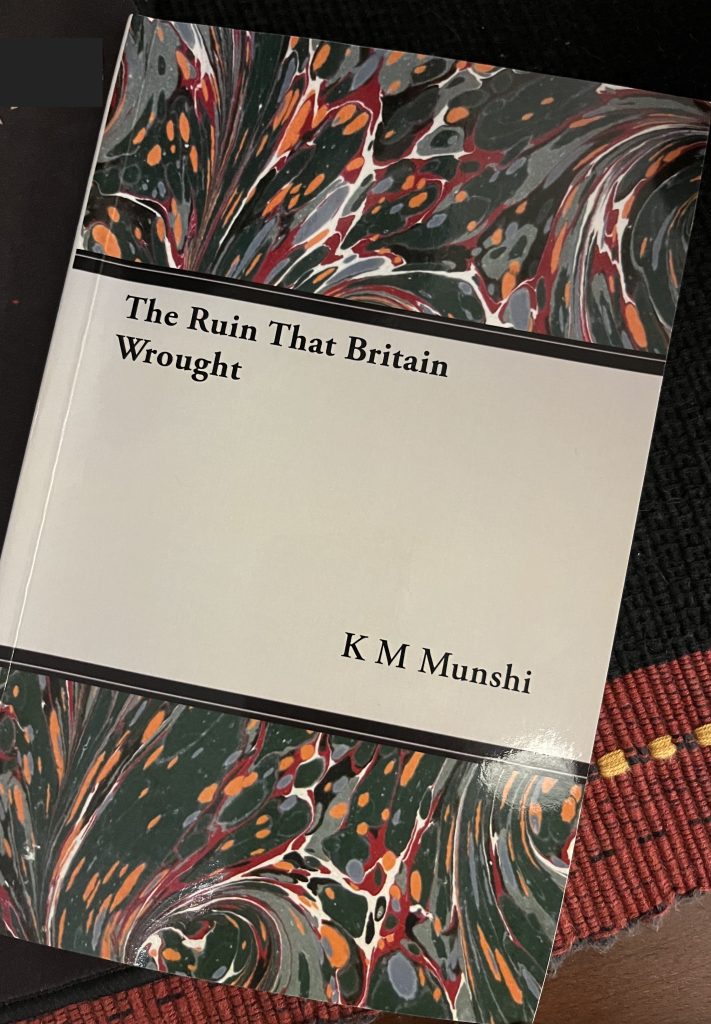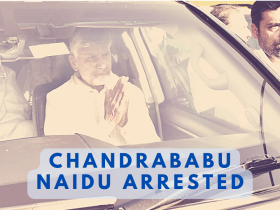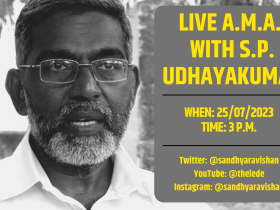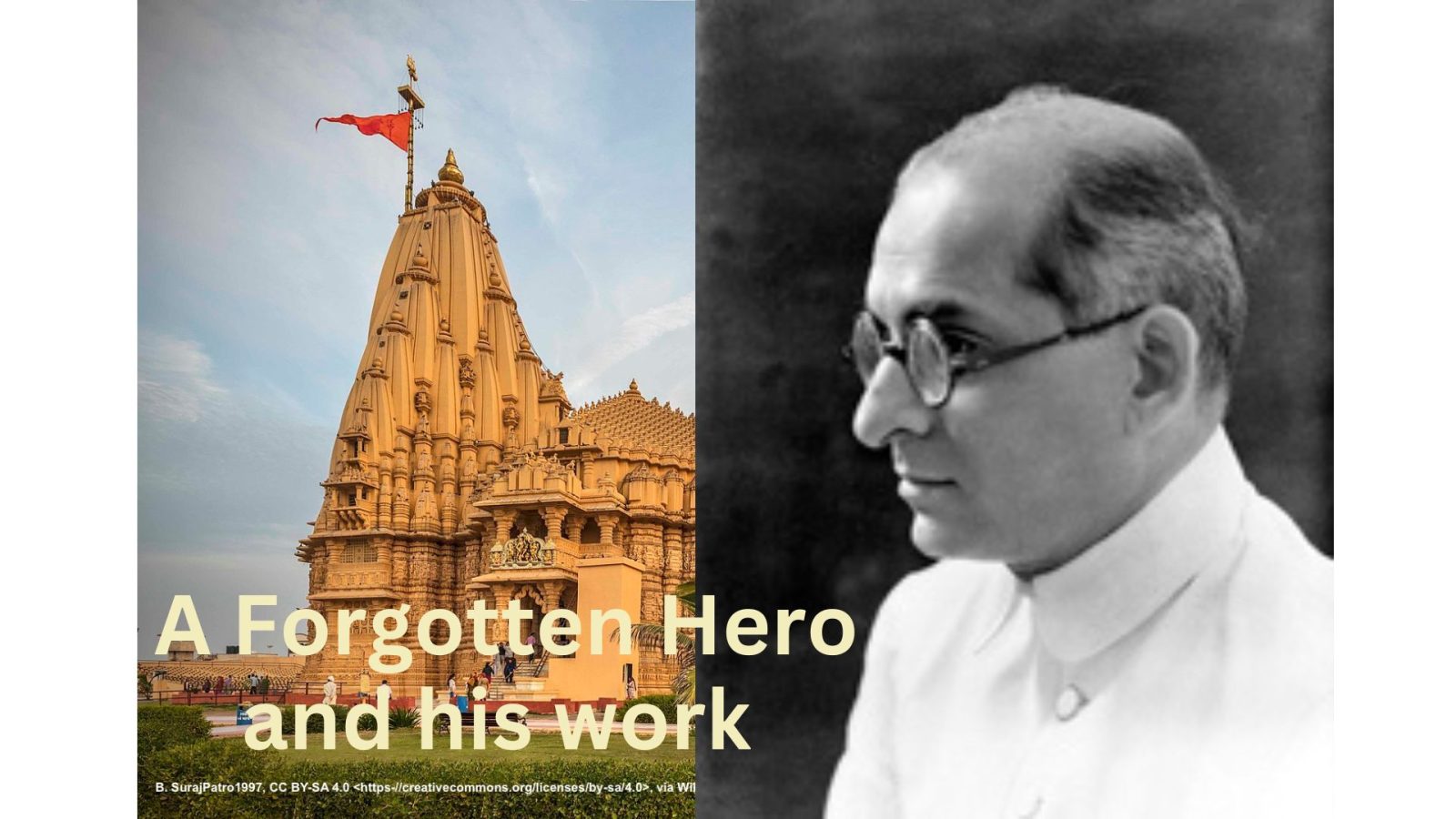By Sandhya Sridhar
“Today, after a century and a half of British rule, we are poor, underfed, illiterate, backward in all respects where Government help was necessary, thwarted in all matters where no such help was needed. This is neither mere logic, nor rhetoric; it is the testimony of facts mostly found by Britishers.”
This is what K. M. Munshi, freedom fighter, lawyer, prolific writer and patriot had to say in 1946, in his book, ‘The Ruin That Britain Wrought’. He notes that India, in the pre-British period, was a land of successful cottage industries. He describes the volumes of exports, especially of textiles, and then notes, “But Britain became the master of India and soon destroyed her export trade.”

Who was K. M. Munshi? Why is his voice so important? This writer was introduced to the works of Munshi through his wonderfully imaginative fiction, the eight-volume ‘Krishnavatara’, the last of which remained incomplete. The ‘Patan’ triology is an exciting historical fiction that is a riot of a read, so is his ‘Parshu Ram’, ‘Prithvi Vallabh’ and others. These I mention as just part of his large corpus of writing of more than 125 books in Gujarati, Hindi and English.
Kanhaiyalal Maneklal Munshi was born in in December 1887 and was a lawyer, who became active in the freedom movement. He was greatly influenced by his professor at Baroda, Aurobindo Ghosh and soon joined the Swaraj Party. However, inspired by Gandhiji, he joined the Indian National Congress, and was arrested many times when he participated in the Quit India movement.
Munshi founded the Bharatiya Vidya Bhavan in 1938, was part of the Flag Committee that was to arrive upon the flag of India, and was also in the committee that drafted the constitution, as well as the sub-committee that drafted the Fundamental Rights. He is considered one of the architects of modern India.
Munshi believed firmly in the peaceful co-existence of Hindus and Muslims under an undivided India. He was also one of the initiators of the rebuilding of the Somnath temple, along with Sardar Patel, after whose demise, Munshi took the project to completion. He was an environmentalist as well.
On the cusp of independence, Munshi noted that British rule had all but eliminated Indian industry, including textiles and shipping, and as he writes, manipulated exchange. “During World War I,” writes Munshi, “India supplied goods and services to Britain and acquired a large balance of trade of about 400 crores.” Then he notes, “After the war ended, British Government manipulated the currency and exchange through the sales of Indian sterling balances,” going on to explain that “The 400 crores which we had earned in four years were lost in one.”
Britain waged her wars and all her ‘imperial expeditions has always been borne by India’, Munshi writes ruing that Indians ‘continued to be slaves in peace and cannon fodder in war’, noting that the early years of the 20th century were marked by a declining of all required food items. It must have been hard for Munshi to write this, but he marks: “If we are one hundred and fifty years behind U.S.A. and U.K, in the general development of our resources it means no real progress has been made since the British came. Britain came; stopped the clock of progress; and we were kept as we were, seeing the world pass us by.”

It is interesting to note that Roy Moxam’s 2016 book, ‘The Theft of India: The European Conquests of India, 1498-1765’ makes similar observations of how colonial rule all but stripped India of her wealth. He writes about the famines that were engendered by either crippling taxes or the diversion of food grains.
K. M. Munshi had assessed India’s losses and put them on record even before independence, demolishing the myth of the great white saviour; spotlighting instead the daylight robbery by all colonial institutions, all of which served but one master: the British Crown.
Those who wish to read the book may access it on https://archive.org/details/in.ernet.dli.2015.65940













Leave a Reply